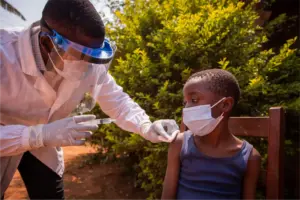
Globally public health has advanced significantly with the official announcement of guidelines for the viral composition of influenza vaccinations for the northern hemisphere’s next 2025–2026 influenza season by the World Health Organisation (WHO). Twice a year, the proclamation coincided with the end of a four-day conference on influenza virus vaccination composition to ensure vaccines stay strong against evolving strains of the virus.
Attended by top worldwide health professionals from WHO Collaborating Centres and Essential Regulatory Laboratories, the symposium looked at influenza virus surveillance data gathered under the WHO Global Influenza Surveillance and Response System (GISRS). These findings are very crucial for helping national regulatory bodies and pharmaceutical companies create, produce, and license influenza vaccines for the next flu season.
Why do we need the update on vaccines?
Given the continuous changes in influenza viruses, vaccines have to be changed also. WHO ensures that, by closely observing circulating virus strains globally, the vaccination composition each year coincides with the most frequent and likely-to-spread strains, therefore enhancing protection and reducing the severity of flu epidemics.
Proposed ingredients in an influenza vaccination
WHO has proposed specific virus strains to be included into the influenza seasons 2025–2026 vaccinations. The slightly varying recommendations depend on the type of vaccination platform used: egg-based vaccines against cell culture-, recombinant protein-, or nucleic acid-based vaccines.
Moreover, the element of the B/Yamagata lineage used in quadrivalent influenza vaccines remains the same from earlier years:
B/Phuket / 3073/2013 -like virus with Yamagata lineage
Ensuring Effective Defense Against Influenza
These updated recommendations are quite crucial in the global fight against influenza since they help to reduce the number of severe cases, hospitalizations, and flu-related deaths. Especially for those most vulnerable—the elderly, small children, and those with impaired immune systems—annual flu vaccines remain among the most successful ways of protecting people and communities.
WHO emphasizes the need of thorough vaccination to control the spread of influenza and safeguard public health even as national health agencies and vaccine producers follow these guidelines.
Get vaccinated; keep your guard and educate yourself.








